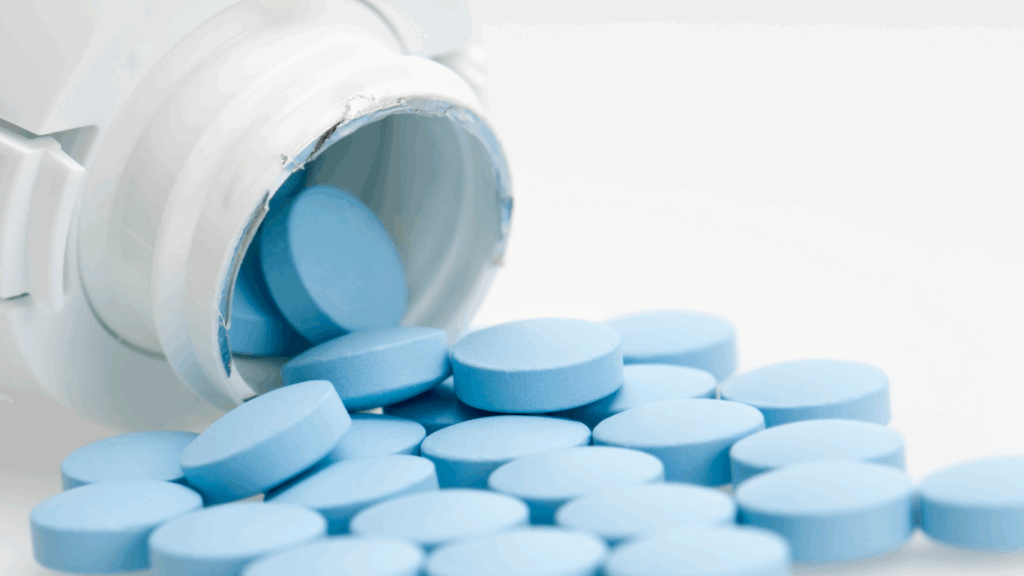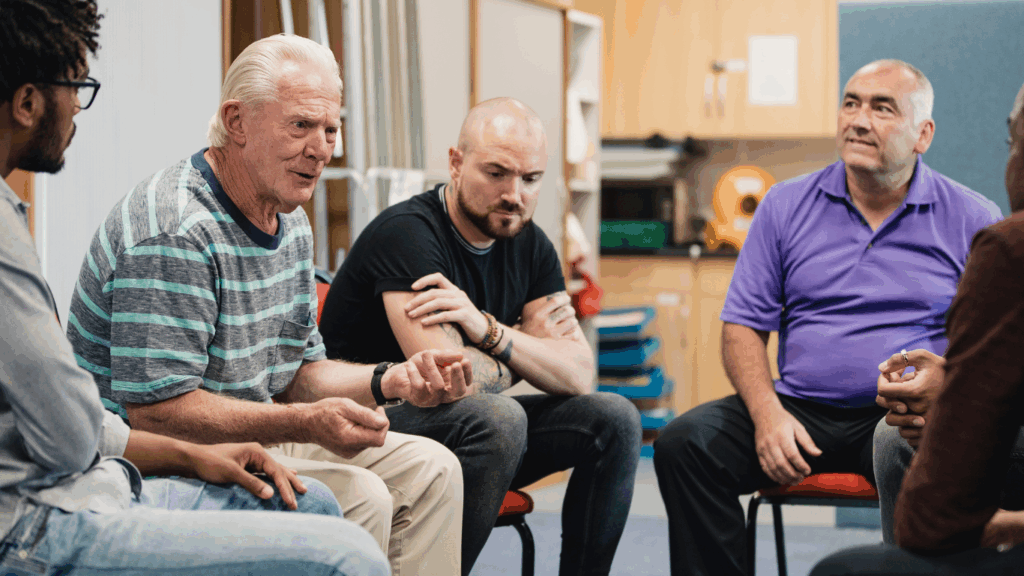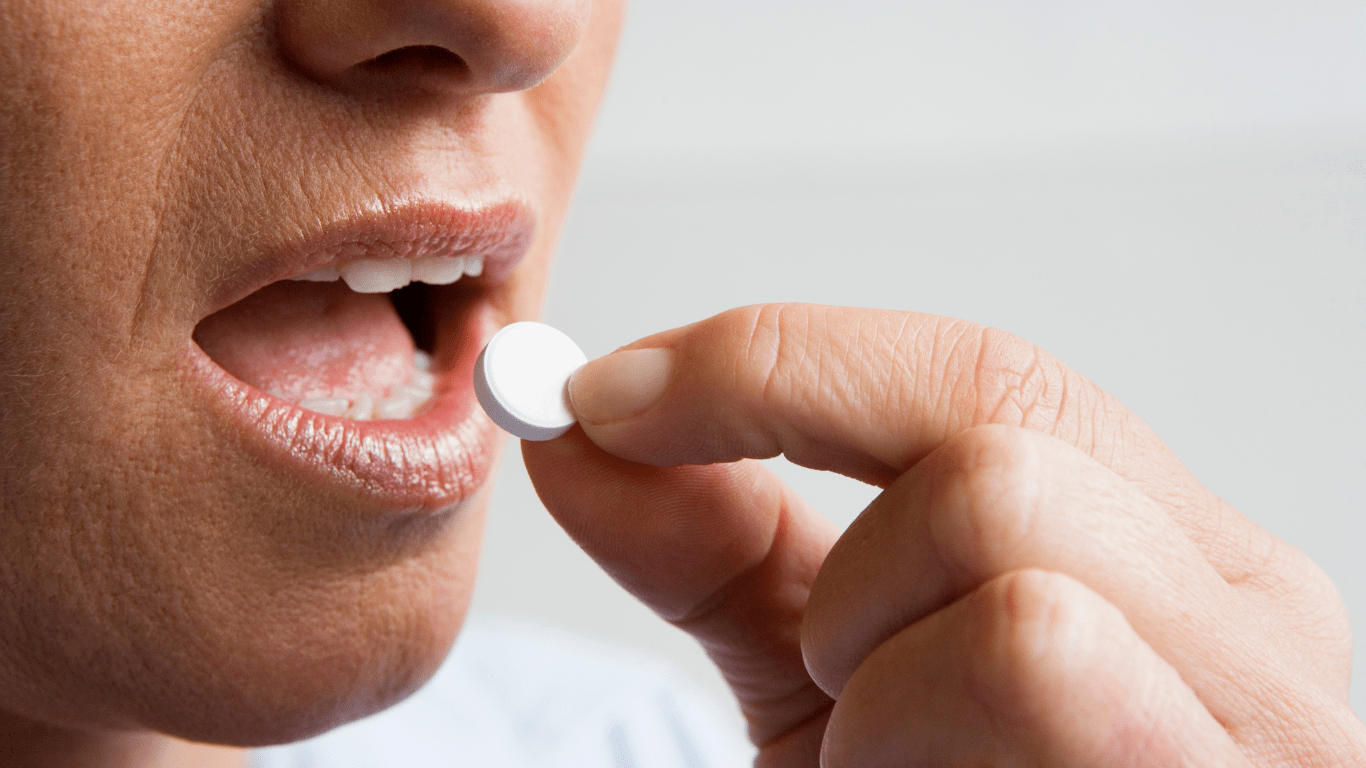At Hand in Hand Recovery Center in Marietta, Georgia, men struggling with benzodiazepine addiction can work with their very own treatment team to determine which services will be most effective. The goal is to promote long-term healing for the entire client through various customizable options.
Understanding Benzo Addiction
Benzodiazepines, such as Xanax, Valium, and Klonopin, work by calming the central nervous system, providing rapid relief for anxiety and sleep disorders. However, their calming effects often lead to dependence, especially when used long-term or misused.
Men are likely to be prescribed benzodiazepines for conditions like anxiety or insomnia that develop as a response to workplace stress or trauma. Unfortunately, there is limited data revolving around men and benzo use because of a lack of reporting of those issues. Men tend not to seek help for substance abuse, particularly when prescription medications are involved.
Biological factors may also play a role in benzodiazepine addiction in men. Male bodies metabolize drugs differently than women due to higher muscle mass and hormone profiles, which can affect how benzos are processed. This may lead to faster tolerance buildup due to increased use of the medication or misuse of dosages to achieve the same effects.
Psychologically, men are less likely to seek help for mental health conditions (particularly anxiety and depression) due to stigma, so they may be more likely to turn to benzos as a coping skill to deal with trauma and stress.
Understanding the underlying factors and causes of benzo addiction is critical for developing effective treatment plans. At Hand in Hand Recovery, we place heavy emphasis on the initial assessment phase to ensure that we understand each client completely. This allows us to tailor each program to the individual.

Signs and Symptoms of Benzo Addiction
Recognizing benzodiazepine addiction in men may be a challenge, specifically because men rarely seek help and may try to mask symptoms due to societal norms.
The signs and symptoms can be broken down into physical, behavioral, and psychological factors, with some manifesting differently in men than in women.
Physical Symptoms
A man experiencing benzo addiction may exhibit the following physical symptoms:
- Tremors
- Sweating
- Nausea
- Seizures
- Slurred Speech
- Dizziness
- Impaired Motor Skills
- Insomnia
- Worsened Anxiety
Behavioral Symptoms
Men who are experiencing benzo addiction may:
- Doctor Shopping: Seeking multiple prescriptions from different providers.
- Secrecy: Hiding drug use from family or friends.
- Neglecting Responsibilities: Missing work, avoiding family obligations, or losing interest in hobbies they once enjoyed.
- Risk-Taking Behaviors: Combining benzos with other drugs or alcohol.
Psychological Symptoms
Men may also experience:
- Mood Swings: Irritability, aggression, or anxiety.
- Cognitive Impairment: Memory lapses or difficulty concentrating.
- Depression or Apathy: Feelings of hopelessness or emotional numbness.

The Value of Gender-Specific Treatment
At Hand in Hand Recovery, we offer a male-only treatment experience, offering significant advantages for men struggling with benzo addiction.
Our gender-specific programs offer customizable services that not only address addiction but also tackle the unique challenges and factors that influence addiction in men.
Gender-specific treatment offers a wide variety of benefits, including:
- Stigma Reduction: Because men face societal pressure to appear strong and self-reliant, they are often discouraged from seeking help or speaking out about their vulnerabilities. Our gender-specific program provides a safe space for men to openly discuss their trauma, stress, and addiction without fear or judgment. Working in group therapy, our clients can create bonds with one another and foster camaraderie with men in the same situation as them.
- Biological Differences: Because men have biological differences, they may require different types of medication management to help with the withdrawal process. Our treatment teams tailor the medical experience to each man, reducing the risk of further medical complications.
- Treatment Teams: Our treatment teams have experience in working with and treating men who struggle with drug addiction. Because of this, the therapies our clients participate in can address male-specific stressors. Our program incorporates other topics such as anger management, emotion regulation, and self-esteem building, resonating with recovery men.
- Accountability: Our treatment program also fosters accountability and motivation. Men work with other men who have been or are currently where they are. Our clients develop trusting relationships and work together to hold one another accountable.
Detox and Withdrawal Management
Typically, detox is the first step in treating benzodiazepine addiction. However, this process must be taken seriously as withdrawal from benzos can be dangerous. Though we do not offer this service at Hand in Hand Recovery, we partner with the best in the business and will connect our clients to detox programs.
Benzodiazepine withdrawal can be life-threatening, with symptoms including:
- Seizures
- Delirium
- Extreme Anxiety
Depending on the client’s muscle mass and metabolic rate, these symptoms may be more intense and last from 24-48 hours to several weeks.
At these detox programs, clients will experience the following:
- Tapering: the process of gradually decreasing the benzo dose under medical supervision to minimize the severity of the withdrawal.
- Medication Management: Medical professionals may prescribe Anticonvulsants or other medications to manage seizures and other symptoms. Men with co-occurring conditions (mental illnesses like anxiety or depression) may also be prescribed non-addictive medications to treat these symptoms.
- Monitoring: Clients will be consistently assessed and monitored during medical detox to ensure their safety.
Our Programs to Treat Benzo Addiction
At Hand in Hand Recovery, we offer two different outpatient services:
Intensive Outpatient Program (IOP)
Our highest level of care is IOP, which requires men to participate in treatment for several hours throughout the week. This is the most flexible option, allowing our clients to live at home, continue working, or handle responsibilities while receiving treatment.
Because IOP is much more flexible, it is also highly customizable. Our clients will begin with an assessment to determine the most effective services. Clients may have the opportunity to participate in:
- Individual Therapy
- Group Therapy
- Family Therapy
- CBT
- DBT
- Psychoeducation Groups
- Holistic Treatment
- And More!
Outpatient Program
After IOP, our clients typically transition to general outpatient care. This involves an hour or two of weekly treatment and typically only individual or group therapies. Though it is not typically recommended as a client’s first treatment option, it is a great aftercare routine.

Evidence-Based Interventions
The core component of our benzodiazepine treatment programs for men is our evidence-based interventions. These services are essential for addressing both the psychological and behavioral aspects of addiction and include:
- Cognitive Behavioral Therapy (CBT): CBT is the most well-known type of therapy. Clients work with their therapist to identify negative thought patterns that drive drug use and change them. CBT may focus on managing stress, challenging perfectionist tendencies, and building emotional resilience for men. Clients will also work with their therapist to explore triggers and develop coping skills to deal with them.
- Group Therapy: Group therapy may be most effective for men dealing with addiction because it fosters trust among clients, allowing them to develop bonds that improve accountability. Male-only groups enable our clients to discuss sensitive topics such as masculinity, anger, trauma, and more.
- Trauma-Informed Care: Many clients begin taking benzos because of underlying traumas. Our highly trained therapists utilize trauma-informed therapies such as EMDR to help clients healthily process those traumas.
- Family Therapy: Oftentimes, addiction affects relationships, and clients tend to struggle with guilt or strained dynamics. Family therapy allows for rebuilding trust and communication, addressing roles like fatherhood or partnership.
- Relapse Prevention: Our goal is not to have long-term clients, so a cornerstone of our programs is relapse prevention training to help our clients develop skills to use outside of rehab. We work with each client to identify high-risk situations that may come up in life. Clients work with their treatment team to set boundaries, seek support, and use coping skills to maintain sobriety.
Holistic Approaches
At Hand in Hand Recovery, we don’t just prioritize symptom management. We believe in treating each client as a whole, emphasizing total body recovery. Our holistic approach allows clients to participate in mindfulness, yoga, exercise, nutrition counseling, and more. This will enable clients to develop positive and healthy coping skills for the future.
Because we are a male-only center, we can tailor our holistic services to our clients more specifically. The goal is to teach stress reduction techniques and positive habits that can be continued outside treatment.

Start Your Recovery Journey Today
Benzodiazepine addiction is a complex but treatable condition, particularly when the program is tailored to meet the specific needs of each client. By understanding critical factors like underlying conditions and societal stigma, we can work with clients to achieve long-lasting recovery. Call us today at (470) 280-2791 to begin your recovery program.

 info@handinhandrecovery.com
info@handinhandrecovery.com 3411 Austell Road Suite 200, Marietta, Georgia, United States
3411 Austell Road Suite 200, Marietta, Georgia, United States

